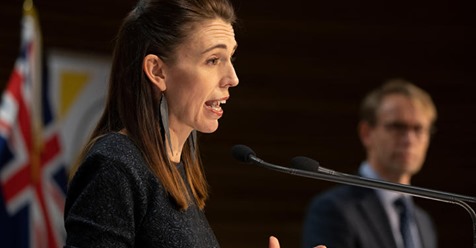No new Coronavirus cases on Isle of Man for three weeks points to additional protection provided by border controls

It has been reported that there have now been no new Covid-19 cases on the Isle of Man (Manx: Mannin) for three weeks. The Isle of Man Government stopped all passenger arrivals to the Isle of Man by air and sea from the morning of 27 March 2020. The borders remain closed to all but essential workers and certain other specific categories. Along with other measures, including social distancing, it appears that the closure of Manx borders has been an important factor in preventing further spread of the virus.
The implementation of strict border controls has also been seen as an important factor in New Zealand's success in tackling the virus. They imposed their border closures as early as 2nd February 2020, when they announced they would refuse entry to “any foreign travellers who leave or transit through mainland China.” At the time this was met with criticism from the World Health Organisation (WHO), whose director-general Tedros Adhanom Ghebreyesus reiterated on February 3: “There is no reason for measures that unnecessarily interfere with international travel and trade.” The WHO also at the time warned “against actions that promote stigma or discrimination.”
The World Health Organisation was clearly wrong in this initial approach. It has raised questions that the WHO had succumbed to political pressure from China, one of its major funders. Fortunately, along with the Australian government, who have also had considerable success in preventing significant spread of the virus, New Zealand chose to ignore the initial travel advice from the WHO. Indeed they extended their border control policy to other countries. Even now, New Zealand Prime Minister Jacinda Ardern, has made it clear that strict border controls will remain in place for New Zealand. She has said that she had no timeline for removing them as they were the country’s best line of defence. Only New Zealanders and their immediate families can enter the country currently, and must spend 14 days in government-run quarantine.
This all seems to be in stark contrast to the approach of the United Kingdom (UK) government. They failed to close their borders. A report on BBC News today reveals that coronavirus was brought into the UK on at least 1,300 separate occasions. The study, by the Covid-19 Genomics UK consortium (Cog-UK), pointed to the virus having multiple origins in the UK. With at least 1,356 origins, the study shows that on each of those occasions somebody brought the infection into the UK from abroad and the virus began to spread as a result. This clearly indicates a major failure on the part of the UK government in regard to border controls.
The good news for places like New Zealand is that they have just reported that they had no new Covid-19 cases. In reaching this milestone the New Zealand government has announced they are lifting internal restrictions on the population. The Isle of Man, with no new cases, is also now carefully easing restrictions. Non-essential retail businesses are already able to open with appropriate safety measures in place. The same applies to construction and trade. Lifestyle businesses (beauticians, hairdressers, barbers, tattoo artists) were allowed to reopen from 1 June. Albeit with appropriate protection measures in place. Restaurants, cafes, canteens, mobile catering and on-licence premises have also been allowed to open. However, food and drink must be for takeaway only, or for consumption in an outdoor area.
Campsites and caravan parks are open. Self-catering accommodation is open, although in this case only to be occupied by members of the same household. At this stage Hotels and B&Bs remain closed. Outdoor sporting and recreational facilities are open. Gyms and fitness centres will be allowed to reopen from 15 June for training and low-aerobic group classes. Places of Worship are open, with each religious institution deciding for themselves when and how they choose to open. The whole momentum of the Manx government is now to try and return to some form of normality. However, like New Zealand, for the time being the Manx borders remain closed. As the New Zealand Prime Minister has made clear, there is no timeline for removing border controls as they were the country’s best line of defence.
Image below: New Zealand Prime Minister Jacinda Ardern







